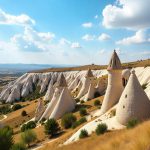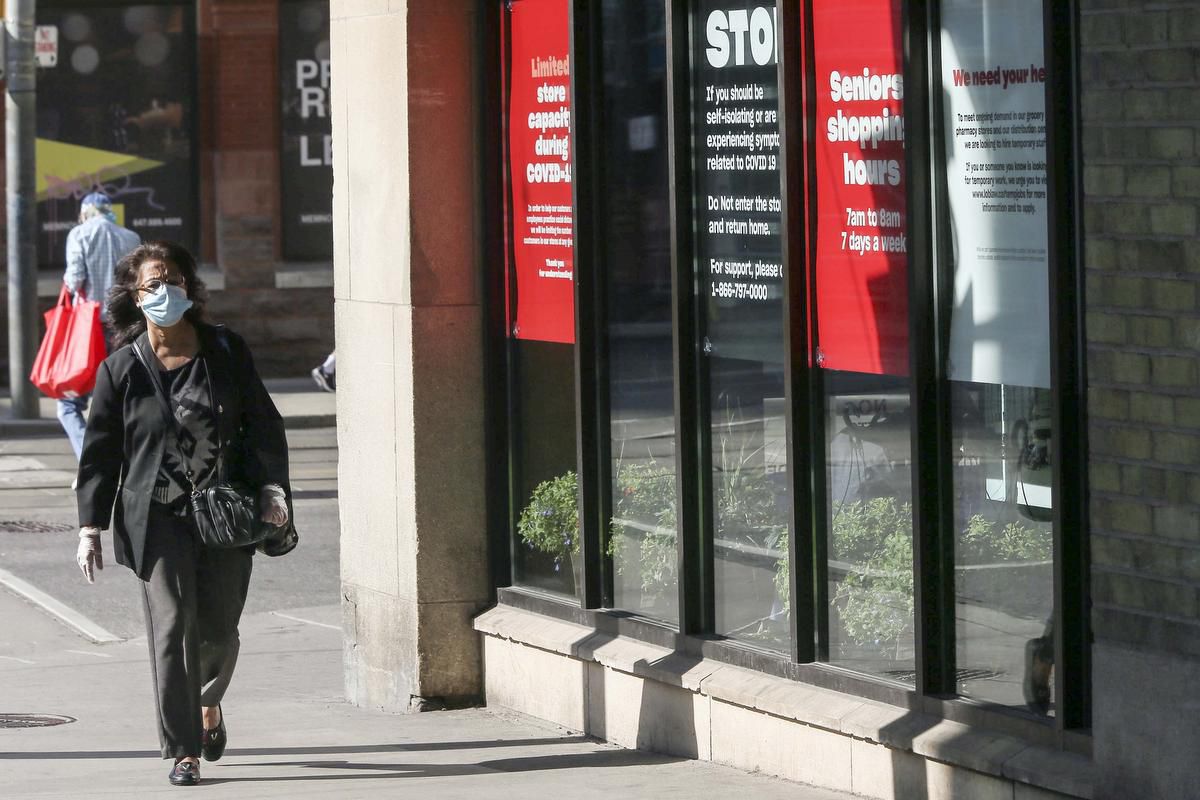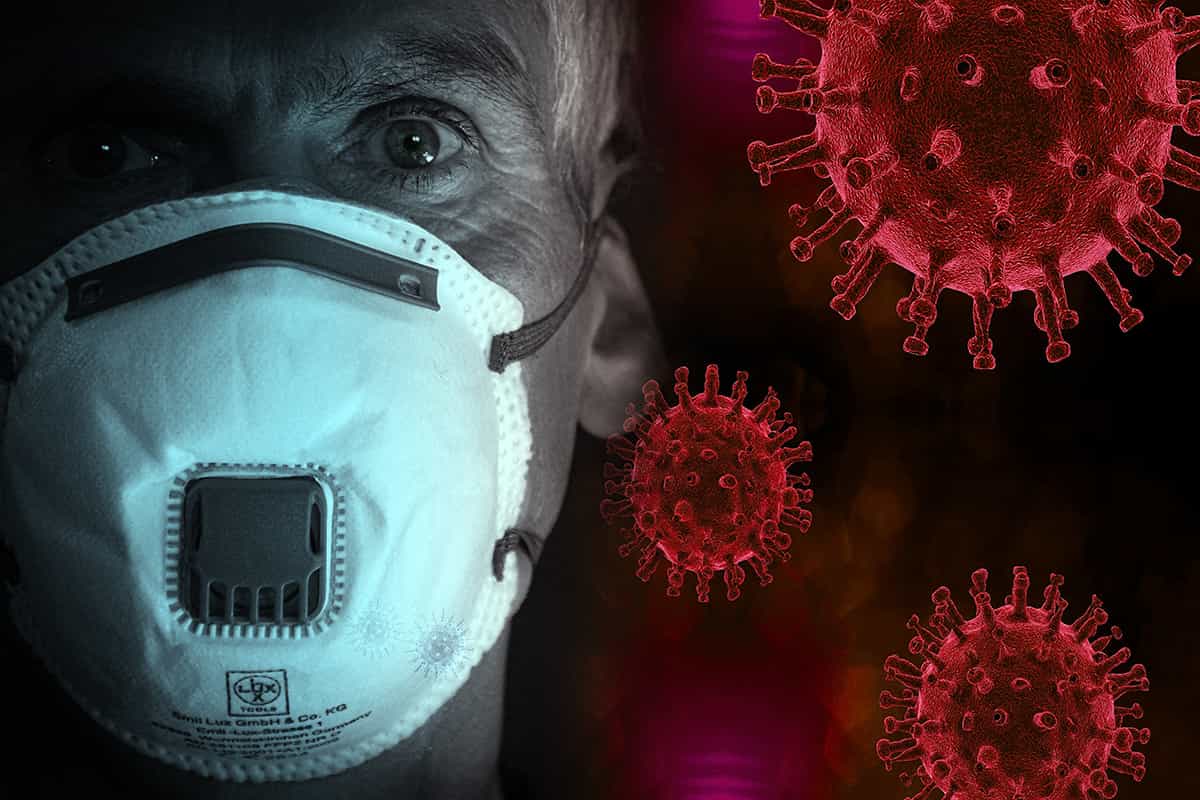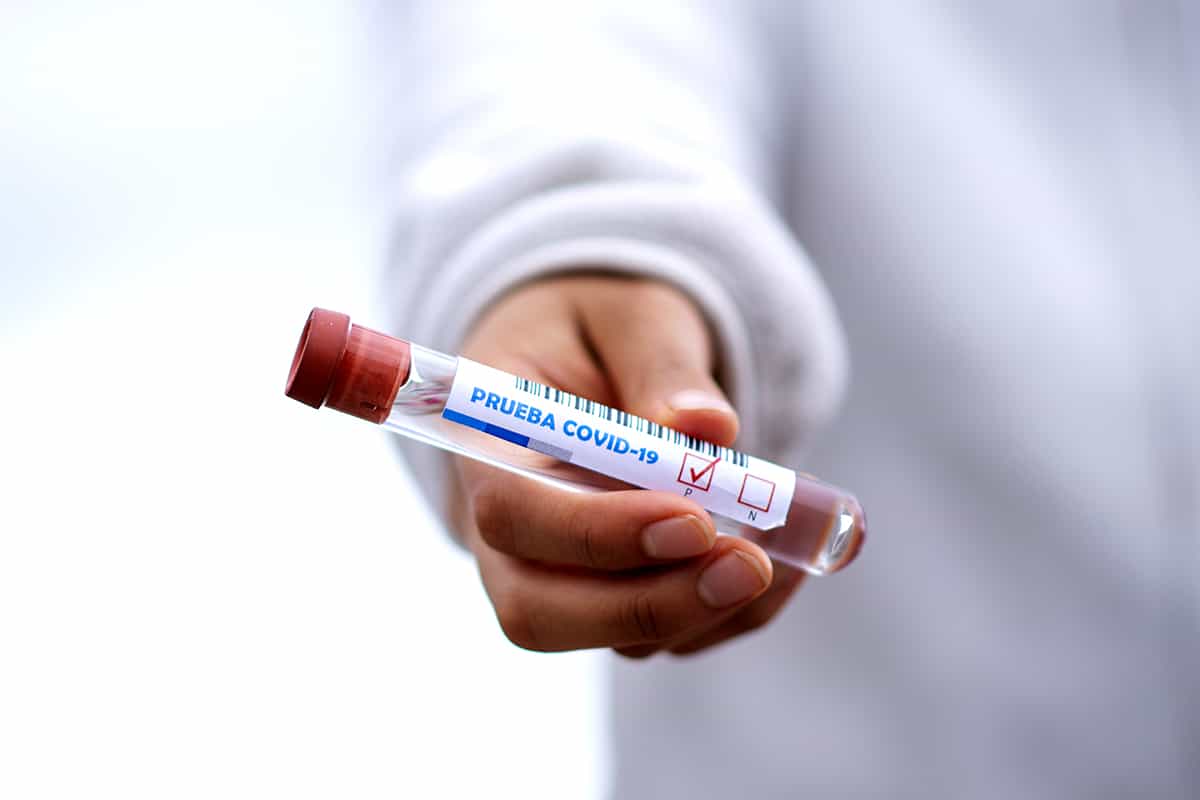The latest novel coronavirus news from Canada and around the world Tuesday (this file will be updated throughout the day). Web links to longer stories if available.
8:50 a.m.: A heat wave engulfing large swaths of Ontario and Quebec is forcing cities such as Toronto to rethink how they offer relief in light of restrictions meant to curb the spread of the novel coronavirus.
Libraries, community centres and pools — spaces where residents can traditionally go to cool down — remain closed due to COVID-19-related health measures as temperatures are expected to soar above 30C for several days.
In Toronto, where hundreds of such spaces were identified as a heat relief network last year, officials say they will open six emergency cooling centres across the city.
They say the centres are meant as a “last resort” for residents who don’t have access to a cool space, adding strict infection prevention and control protocols will be in place.
The city says more spaces will be designated as emergency cooling centres soon as it announces its full, adjusted heat relief strategy.
Environment Canada has issued a heat warning for much of southern and eastern Ontario, as well as special weather statements related to heat for parts of the province and most of Quebec.
8:15 a.m.: The City of Toronto said it will pilot painting circles in the grass at Trinity Bellwood, to guide people on where to sit in order to remain two metres apart, as has been done in other cities.
If it’s successful the tactic may be expanded into other parks and areas in the city that attract large numbers of people.
Thousands gathered Saturday at the downtown Toronto park to enjoy the beautiful weather, ignoring the physical distancing rules.
Carleton Grant, the city’s executive director, municipal licensing and standards, said controlling the crowd on Saturday presented a challenge.
“Saturday we really spent our time educating and didn’t want to infuriate the crowd, with large crowds and the number of staff we had there,” said Grant.
Read the full story from the Star’s Francine Kopun.
8 a.m.: Bank of Nova Scotia’s quarterly earnings plunged 41 per cent after the lender set aside a record amount for loan losses, giving investors their first indication of how the coronavirus pandemic will affect fiscal second-quarter results at Canadian banks.
Scotiabank earmarked $1.85 billion for soured loans, less than analysts expected. Canada’s six biggest banks are expected to set aside $8.9 billion for loan losses in the three months through April 30, triple the first-quarter total. At Scotiabank, earnings beat analysts’ estimates even with the increase in provisions and charges tied to its shuttered metals-trading business.
Scotiabank is the first large Canadian lender to report second-quarter results. The country’s six biggest banks are expected to post a 44 per cent profit decline in the quarter, the median of estimates compiled by Bloomberg Intelligence. That would be the biggest drop since 2009, amid the global financial crisis.
7:39 a.m. For a seventh consecutive day, India reported a record single-day jump in new virus cases. The health ministry counted a total of 145,380 cases, a one-day gain of 6,535, and said 4,167 people had died.
Most of the cases are concentrated in two neighbouring states in central India, Maharashtra, home to financial hub Mumbai, and Gujarat, Prime Minister Narendra Modi’s home state.
An uptick of cases has also been reported in some of India’s poorest eastern states as migrant workers returning to native villages from cities have begun arriving home on special trains. India has been easing its lockdown, with domestic flights resuming Monday at a fraction of normal.
7:30 a.m.: Merck & Co. moved to bolster the global fight against the coronavirus, unveiling development plans for a pill to the treat the infection and two vaccines to prevent it.
The U.S. drugmaker bought rights to develop a promising antiviral discovered at Emory University and will work with partners to advance candidate vaccines based on the technology behind Ebola and measles immunizations, according to statements on Tuesday.
7:28 a.m.: Members of the Prince Edward Island legislature will meet Tuesday for the first session of the house since the COVID-19 pandemic began.
They are expected to debate a number of pieces of legislation related to the novel coronavirus.
The Island has had just 27 cases and all have recovered.
Sessions of the legislature are being held in the smaller Coles Building while a major restoration continues in historic Province House, where room was already at a premium.
Desks have been moved apart to allow proper physical distancing and there will be no seating available for media or the public.
The spring session was originally set to begin April 7, but was postponed by the pandemic.
7:09 a.m. Wondering why some provinces are choosing bubbles over distance and how long we’ll have to wait to find out how last weekend’s mass gathering at Trinity Bellwoods Park might affect Toronto’s coronavirus case count. Read the full story by the Star’s Patty Winsa.
5:30 a.m.: The federal government will update Canadians today on the results of the mad scramble to procure personal protective equipment — just as demand is poised to skyrocket with more people returning to work and public health officials preparing for a potential second wave of COVID-19 infections.
As of May 19, data posted by Public Services and Procurement Canada showed only a fraction of the millions of gloves, masks, face shields, ventilators and litres of hand sanitizer ordered by the federal government had so far been received.
For example, of 29,570 ventilators ordered, only 203 had been received.
When it comes to the coveted N95 respirator mask that’s the standard-issue covering for the heath-care profession, upwards of 104 million have been ordered but just less than 12 million received and, of those, 9.8 million didn’t meet Canadian standards.
The equipment has been in high demand worldwide, with every country competing for scarce supplies from a limited number of suppliers, mostly in China. In what’s been described as a “wild west” battle, some confirmed orders have been snatched out from under Canada’s nose by other countries willing to pay more.
5:05 a.m.: Half of Canadians believe they’re not getting the whole truth from their governments about COVID-19, a new poll suggests, and some also believe conspiracy theories about where the novel coronavirus began.
The most recent survey from Leger and the Association for Canadian Studies found 50 per cent of respondents felt governments were deliberately withholding information about the pandemic of the novel coronavirus, which has killed thousands and ground the economy to a halt.
“It’s staggering, in a period where I believe trust has never been as high,” said Leger vice-president Christian Bourque.
The poll also asked respondents about their satisfaction with the measures governments were putting in place to fight COVID-19. Sixty-eight per cent said they were satisfied with what their local government is doing, 74 per cent with the federal government’s actions and 78 per cent with their provincial government.
Bourque found those numbers quite high, considering the results suggest people also seem to believe they are not getting the full picture.
The misgivings were greatest in Quebec, where 60 per cent of those polled believe governments are keeping secrets about the virus.
Get the latest in your inbox
Never miss the latest news from the Star, including up-to-date coronavirus coverage, with our email newsletters
Sign Up Now
5 a.m.: Nearly two weeks ago the White House urged governors to ensure that every nursing home resident and staff member be tested for the coronavirus within 14 days.
It’s not going to happen.
A review by The Associated Press found that at least half of the states are not going to meet White House’s deadline and some aren’t even bothering to try.
Only a handful of states, including West Virginia and Rhode Island, have said they’ve already tested every nursing home resident.
Many states said the logistics, costs and manpower needs are too great to test all residents and staff in a two-week window. Some say they need another week or so, while others say they need much more time. California, the most populous state, said it is still working to release a plan that would ensure testing capacity for all residents and staff at skilled nursing facilities statewide.
And still other states are questioning whether testing every nursing home resident and staff, regardless of any other factors, is a good use of time and money.
“At this time it would be fairly useless to do that,” said Nebraska Chief Medical Officer Dr. Gary Anthone, adding that the state would have to repeat the tests almost daily to get more than a snapshot in time, and the state doesn’t have the capacity when there are others who need to be tested.
4:20 a.m.: British leader Boris Johnson’s powerful chief aide insisted that he wouldn’t resign for driving the length of England while the country was under strict lockdown — a trip he made without informing the prime minister first.
The government is facing a tide of anger from politicians and the public over the revelation that Dominic Cummings travelled more than 250 miles (400 kilometres) from London to his parents’ home in Durham, northeast England at the end of March.
Cummings says he travelled so that extended family could care for his 4-year-old son if he and his wife, who were infected with the coronavirus, both fell ill.
His trip came after the government imposed a strict “stay home” order, and Cummings is being accused of flouting the rules he expected the rest of the country to follow. Many Britons have taken to social media and radio phone-ins to recount how the lockdown had prevented them from visiting elderly relatives, comforting dying friends or attending the funerals of loved ones.
In a televised news conference in the garden of 10 Downing St. — all but unheard of for an unelected adviser — Cummings tried to quash the controversy with a detailed but unrepentant account of his movements.
Cummings insisted that “the rules … allowed me to exercise my judgment” and that his need to ensure child care for his son was an “exceptional situation.”
4:15 a.m.: It’s not quite a case of coitus interruptus, but efforts to create a very special baby are definitely on hold. Blame the pandemic.
Groundbreaking work to keep alive the nearly extinct northern white rhino subspecies — population, two — by in vitro fertilization has been stalled by travel restrictions. And time is running out.
The two northern white rhinos are female. The goal is to create viable embryos in a lab by inseminating their eggs with frozen sperm from dead males, then transfer them into a surrogate mother, a more common southern white rhino.
As of January, three embryos had been created and stored in liquid nitrogen. But further key steps now have to wait.
“It has been disrupted by COVID-19, like everything else,” said Richard Vigne, managing director of Ol Pejeta Conservancy in Kenya, home of the two remaining rhinos. “That is, the process of collecting more eggs from the females as well as the process of developing the technique to introduce the northern white rhino embryo into the southern white rhino females.”
It’s an international effort that includes conservationists from Kenya, the Czech Republic, Germany and Italy — many affected by closed borders or restricted travel.
Monday 7:30 p.m.: The people who flocked to Trinity Bellwoods on Saturday, prompting the city to crackdown on Sunday, seemed to be getting mixed messages from authorities on Monday.
“Why don’t you do us a favour and all get tested now?” Ontario Premier Doug Ford told his televised daily news conference Monday.
Ontario’s associate medical officer later contradicted Ford’s advice, saying the Trinity Bellwoods crowd should monitor for symptoms for two weeks and try not to mix with others, particularly older parents or others at higher risk.
“We’re not recommending they all go for testing at this point,” said Dr. Barbara Yaffe.
As Toronto’s medical officer of health patiently explained, the problem with testing immediately is that it takes time for the virus to develop to the point where it can be detected by a test.
“We all agreed on this approach,” said Dr. Eileen de Villa at Monday’s city hall media briefing.
Monday 5:50 p.m.: After a one-day dip in cases Sunday, Ontario’s regional health units once again reported more than 400 new COVID-19 infections Monday, according to the Star’s latest count.
Meantime Toronto’s average rate of new infections hit another new high, now well above the previous April peak.
As of 5 p.m. Monday, the health units had reported a total of 27,489 confirmed and probable cases, including 2,193 deaths.
The total of 417 new confirmed and probable cases reported since Sunday night was in line with a recent rising trend, which had seen five of the past six days report more than 400 new cases.
But the recent upturn in infections across Ontario has not been felt equally across the province. The daily count of new cases has been relatively flat outside of the GTA over the last two weeks. Meanwhile, the averages in the core city have now surpassed the highest levels of new case reports seen since the beginning of the pandemic. Last month, Toronto’s daily average for new cases rose steadily to eventually peak at an average of 209 per day for the seven days ending April 23. On Monday, the equivalent seven-day average hit 230 cases a day.
Meanwhile, the 29 fatal cases reported in the province since Sunday night were up slightly from recent days. Still, the rate of deaths is down considerably since peaking at more than 90 deaths in a day earlier this month, about two weeks after the peak in the daily case totals.
Click here to read more of Monday’s coverage.
Read More











